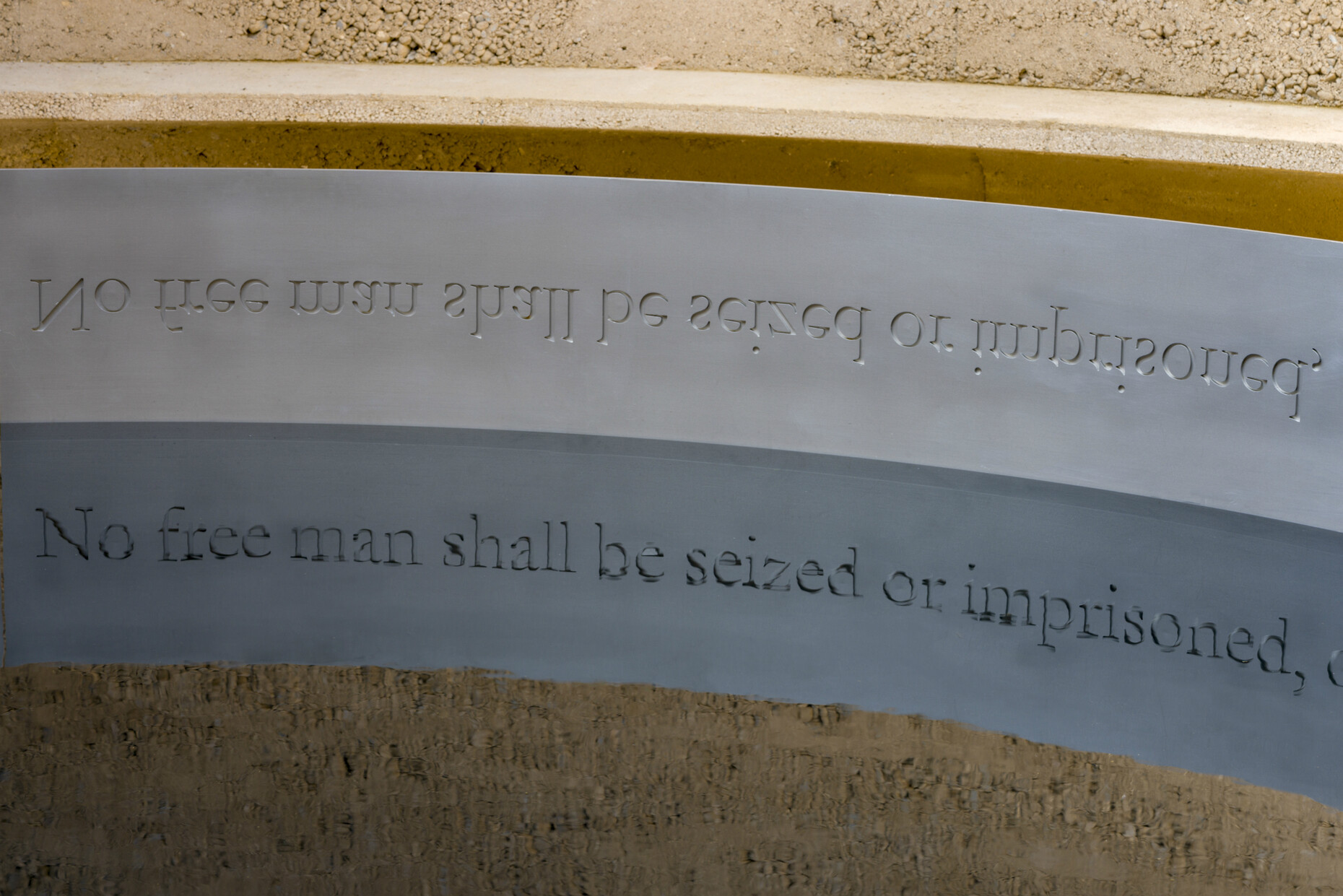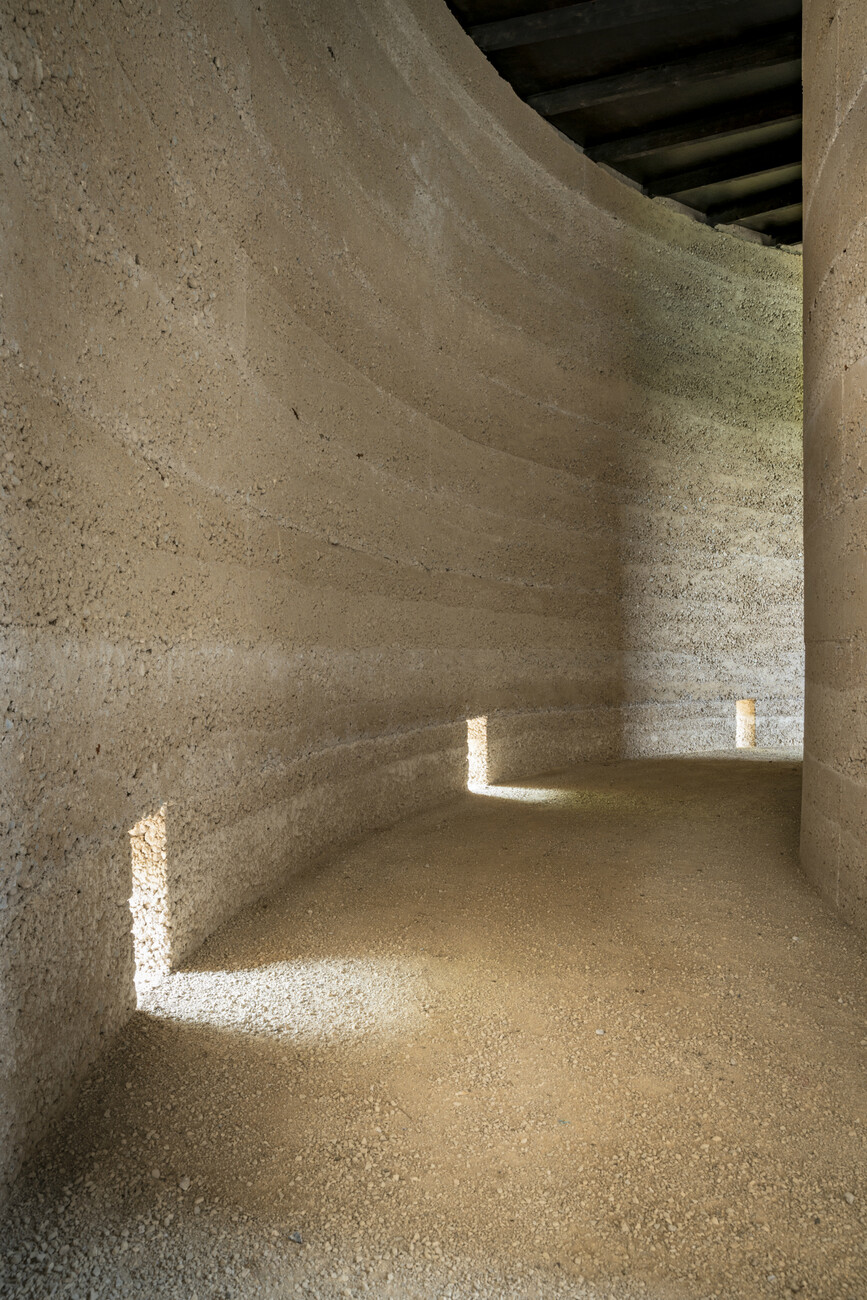Written in the water
In the year 1215, John Lackland, King of England, was forced by his barons to sign the “Magna Charta Libertatum” in the Runnymede water meadows of the Thames nr. Windsor. The nobles of the realm who had risen up against him were primarily concerned with two things: preventing the king from continuing to burden them with excessive taxes and stopping his ministers from curbing their liberty of action. At the time they could not have guessed the far-reaching effects the document was to have in the following 800 years, not lastly because the American constitution was modelled on it. In fact, it became the cornerstone of the rule of law and the constitutional monarchy in England.
In the last two centuries, the place where the Magna Charta was signed (the location of which is not entirely undisputed) has been outfitted with various items of memorial architecture. Now the National Trust, which oversees a large part of the terrain, has commissioned Mark Wallinger to address the Magna Charta in an art work. “Writ in Water” is a large round pavilion made from rammed concrete mixed with local stone. Wallinger built it in collaboration with London architecture office Studio Octopi. The interior of the windowless building is lit up by a large oculus, the shape of which is repeated by a round water basin on the floor. The inner edge of the basin carries an upside-down inscription that may be read as a reflection in the water. What is inscribed here is the famous clause 39of the Magna Charta, which protects the “free man” from arbitrary arrest and imprisonment by the king.
Wallinger has borrowed the title “Writ in Water” from the inscription on poet John Keats’ gravestone “Here lies one whose name was writ in water.” He thus establishes a connection to Keats’ verse, which, according to the artist, will stay in our collective memory only by being repeated often. Likewise, every generation has to fill the text of the Magna Charta with meaning anew. (fap)









